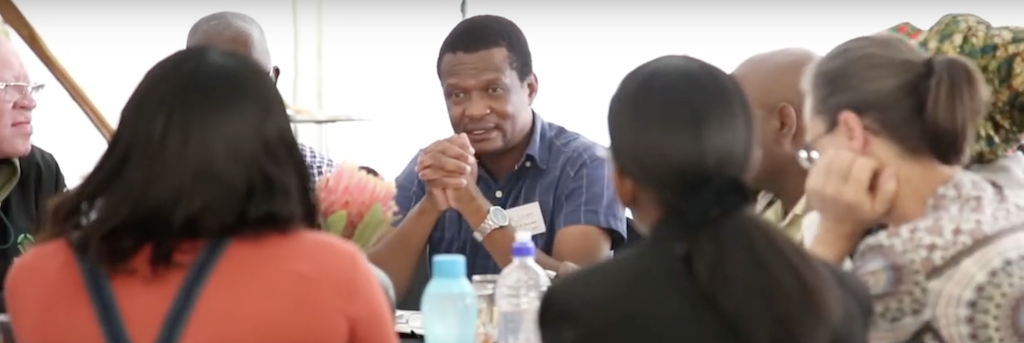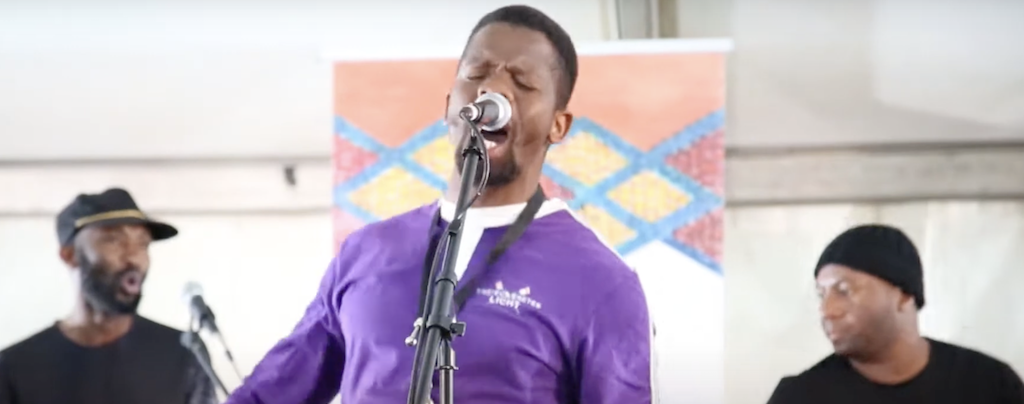Latest Resources

13 March 2019
Experiences of FISP: Farm Input Subsidy Programmes in Africa
In August 2018, the Rural Women’s Assembly (RWA) and the African Centre for Biodiversity (ACB) hosted a speak-out for SADC smallholder farmers in Windhoek, Namibia, on Farm Input Subsidy Programmes (FISPs). FISPs are government agricultural programmes that promote the use of Green Revolution inputs produced by multinational corporations. Farmers were not properly consulted about their […]

5 March 2019
WHY FARMERS FIND FISP PROBLEMATIC (Part 1 of 4 videos)
In August 2018, The Rural Women’s Assembly (RWA) and the African Centre for Biodiversity (ACB) hosted a speak-out with SADC smallholder farmers in Windhoek, Namibia, on Farm Input Subsidy Programmes (FISPs). FISPs are government agricultural programmes to promote the use of Green Revolution inputs (hybrid seed, synthetic fertilizer and agro-chemicals) produced by multinational corporations. WHY […]

15 October 2018
Three animations on GMOs in South Africa
The African Centre for Biodiversity (ACB) is pleased to share with you a three part animation series on GMOs in South Africa. These animations (each around 5 minutes long) are available on our YouTube Channel. The animations speak to the following topics: History of Maize Cultivation and Consumption in South Africa GMOs in South Africa […]

13 August 2018
Farm input subsidy programme (FISP) info pamphlet
This pamphlet offers a quick background on the FISPs and the key issues and concerns. It explains what FISPs are, their aims, why the FISPs are failing to meet their objectives, how they promote small-scale farmer dependency, and ways of transitioning out of FISPs towards more appropriate forms of smallholder farmer support. African Centre for […]

6 July 2018
Smallholder Farmer Autonomy Over Seed Production
At the National Seed Dialogue and Celebration, hosted by the African Centre for Biodiversity at Constitution Hill in December 2017, participants shared their experiences and discussed options and priorities. Smallholder Farmer Autonomy Over Seed Production is the final video in a series of six from the ACB hosted event. Smallholder farmers feed the world, providing […]

22 June 2018
Value of Household and Community Seed Banks
In South Africa, different initiatives are under way to build farmer-based seed bank networks both in the public sector and by civil society. At the National Seed Dialogue and Celebration, hosted by the African Centre for Biodiversity at Constitution Hill in December 2017, participants shared their experiences and discussed options and priorities. This is the […]

31 May 2018
Participatory Plant Breeding and Smallholder Farmers
The National Seed Dialogue and Celebration was hosted by the African Centre for Biodiversity at Constitution Hill in December 2017. The third video in this series, Participatory Plant Breeding and Smallholder Farmers looked at issues of smallholder farmers & seed breeding/crop improvement and the potential roles of smallholder farmers in these processes were discussed. Since […]

18 May 2018
Spiritual and Cultural Value of Seed in South Africa
Spiritual and Cultural Value of Seed in South Africa is the second video in a six part series covering discussions from the National Seed Dialogue and Celebration, an event hosted by ACB. The seed, like the big bang, or evolution, or the atom … bears the mystifying tale of a beginning. We fill our bellies […]

7 May 2018
Politics of seed in South Africa
Hosted by the African Centre for Biodiversity at Constitution Hill in December 2017, the National Seed Dialogue and Celebration honoured the role of smallholder farmers in maintaining and nurturing the diversity of seed in South Africa and regionally, who are being displaced and overridden by a growing private seed sector. The event included thought-provoking dialogues […]

15 March 2018
Objection to Application by Dow for general release of GM maize: MON89034 X TC1507 x NK603 with t...
The ACB has played an essential watch-dog role on new GMO permits in South Africa for a decade now, adding substantially to the discourse about the scientific assessment of GMOs as well as about issues of socioeconomic impacts and democratic decisionmaking, through lodging substantive comments on at least 30 permit applications. We are objecting to […]
